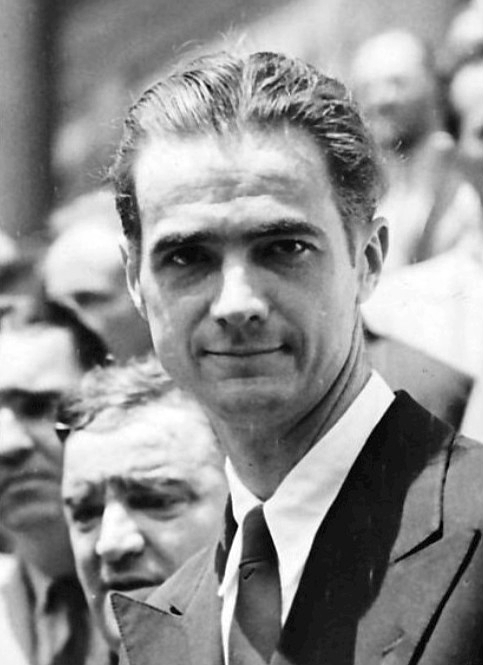Search Results - Hughes, Howard, 1971-
Howard Hughes
Warning: These descriptions may not always be 100% accurate.
 Howard Robard Hughes Jr. (December 24, 1905 – April 5, 1976)
was an American aerospace engineer, business magnate, film producer, investor, philanthropist and aircraft pilot. He was best known during his lifetime as one of the richest and most influential people in the world. He first became prominent as a film producer, and then as an important figure in the aviation industry. Later in life, he became known for his eccentric behavior and reclusive lifestyle—oddities that were caused in part by his worsening obsessive-compulsive disorder (OCD), chronic pain from a near-fatal plane crash, and increasing deafness.
Howard Robard Hughes Jr. (December 24, 1905 – April 5, 1976)
was an American aerospace engineer, business magnate, film producer, investor, philanthropist and aircraft pilot. He was best known during his lifetime as one of the richest and most influential people in the world. He first became prominent as a film producer, and then as an important figure in the aviation industry. Later in life, he became known for his eccentric behavior and reclusive lifestyle—oddities that were caused in part by his worsening obsessive-compulsive disorder (OCD), chronic pain from a near-fatal plane crash, and increasing deafness.As a film tycoon, Hughes gained fame in Hollywood beginning in the late 1920s, when he produced big-budget and often controversial films such as ''The Racket'' (1928), ''Hell's Angels'' (1930), and ''Scarface'' (1932). He later acquired the RKO Pictures film studio in 1948, recognized then as one of the Big Five studios of Hollywood's Golden Age, although the production company struggled under his control and ultimately ceased operations in 1957.
Through his interest in aviation and aerospace travel, Hughes formed the Hughes Aircraft Company in 1932, hiring numerous engineers, designers, and defense contractors. He spent the rest of the 1930s and much of the 1940s setting multiple world air speed records and building the Hughes H-1 Racer (1935) and the gigantic H-4 Hercules (the ''Spruce Goose'', 1947), the largest flying boat in history with the longest wingspan of any aircraft from the time it was built until 2019. He acquired and expanded Trans World Airlines and later acquired Air West, renaming it Hughes Airwest. Hughes won the Harmon Trophy on two occasions (1936 and 1938), the Collier Trophy (1938), and the Congressional Gold Medal (1939) all for his achievements in aviation throughout the 1930s. He was inducted into the National Aviation Hall of Fame in 1973 and was included in ''Flying'' magazine's 2013 list of the 51 Heroes of Aviation, ranked at 25.
During his final years, Hughes extended his financial empire to include several major businesses in Las Vegas, such as real estate, hotels, casinos, and media outlets. Known at the time as one of the most powerful men in the state of Nevada, he is largely credited with transforming Las Vegas into a more refined cosmopolitan city. After years of mental and physical decline, Hughes died of kidney failure in 1976. His legacy is maintained through the Howard Hughes Medical Institute and Howard Hughes Holdings Inc. Provided by Wikipedia

